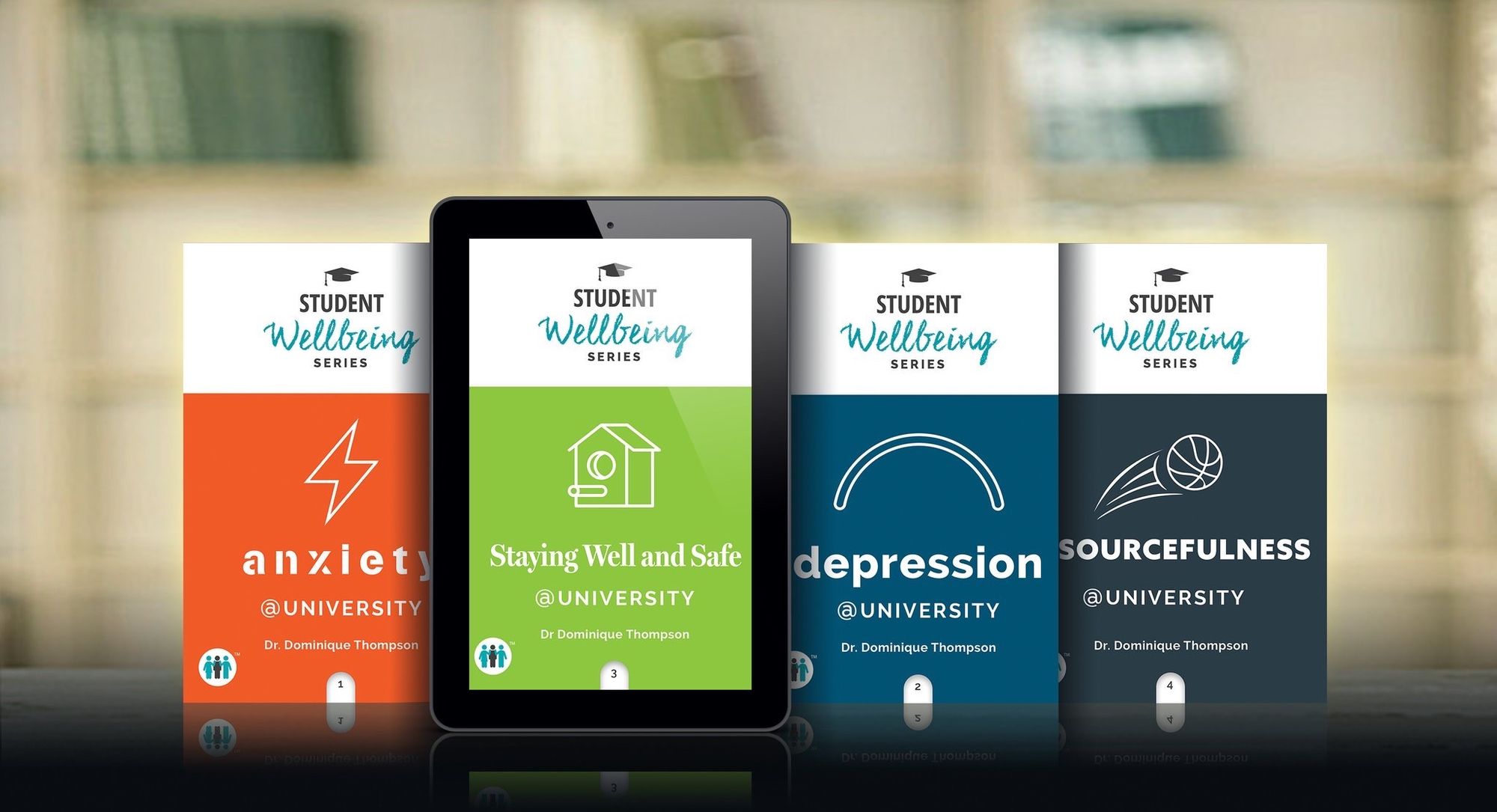By Beth Harris, Wellbeing Editor and Rosie Angel-Clark, Deputy Wellbeing Editor
The Croft Magazine // University brings both challenges and opportunities. In a series of four short guides, Dr Dominique Thompson offers student-specific information and advice for how to manage if things get difficult at university.
University life can be challenging and for many students, this can take a toll on their mental health and wellbeing. The Student Wellbeing Series is a sequence of short guides written by Dr. Dominique Thompson, a GP and student mental health expert. The books aim to inform students about what to expect during their first year of university and how to cope if things get difficult.
Epigram Wellbeing were kindly sent these books by Trigger Publishing to read review. Having struggled with wellbeing myself whilst at University, I was glad to hear of these books as I strongly believe that there is a lack of mental health provision for first-year students.

The series consists of four short books covering anxiety, depression, staying well and safe and resourcefulness at university. Whilst the books can be read in one session, they are broken down into several easy-to-read chapters, making it possible to skip to the relevant parts. I have read a number of self-help and wellbeing books, however, the relevance of these books to students and true understanding of the challenges that they face is what makes these books so unique.
Mental health can be a difficult and sensitive topic to address, however, the books carefully balance the facts with short quotes and real-life student experiences, preventing them from being overwhelming. For me, these student experiences are a strong point of the series as they provide a well-needed reminder that your feelings are valid and understood.
It is clear from reading these books that they are written with expertise and many years of experience. They are both accessible and non-judgemental in that they acknowledge smoking, alcohol and drug use which affects many students during their time at university.
Whilst the books do encourage you to seek help if you are struggling with your mental health and wellbeing, they offer a wealth of information about what help and the types of treatments that are available in order to help you make an informed choice. There are a number of helpful resources and contact numbers at the back of the books which I encourage you to make use of if you are struggling in any way.

Whilst the ease with which you can relate to these books is a clear strength of the series, it is important to acknowledge that university can be a stressful time and so experiencing some of the symptoms of a mental health condition are not uncommon and do not necessarily mean that you have a mental health condition. That said, I wish that I had had access to books like these in my first year of university as they would have helped me to understand not only what I was experiencing but what my friends were experiencing a lot better.
So often it can be easy to dismiss the symptoms of a mental health condition and so giving students access to books like these in student halls and university buildings would not only encourage students to start a conversation about their mental health but seek help earlier.
Thank you again to Trigger Publishing for sending us these books. Whether you are struggling with mental health and wellbeing yourself or know someone who is, I encourage you to get a copy of these books. Let’s keep the conversation going and continue to break the stigma surrounding mental health.
Featured Image: Trigger Publishing / Dominique Thompson
Find The Croft Magazine inside every copy of Epigram Newspaper.









